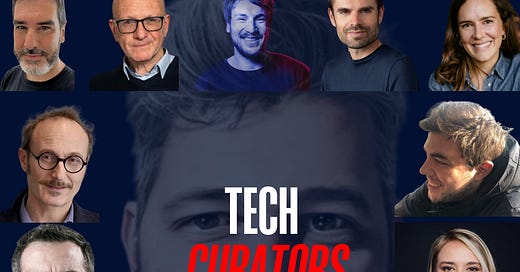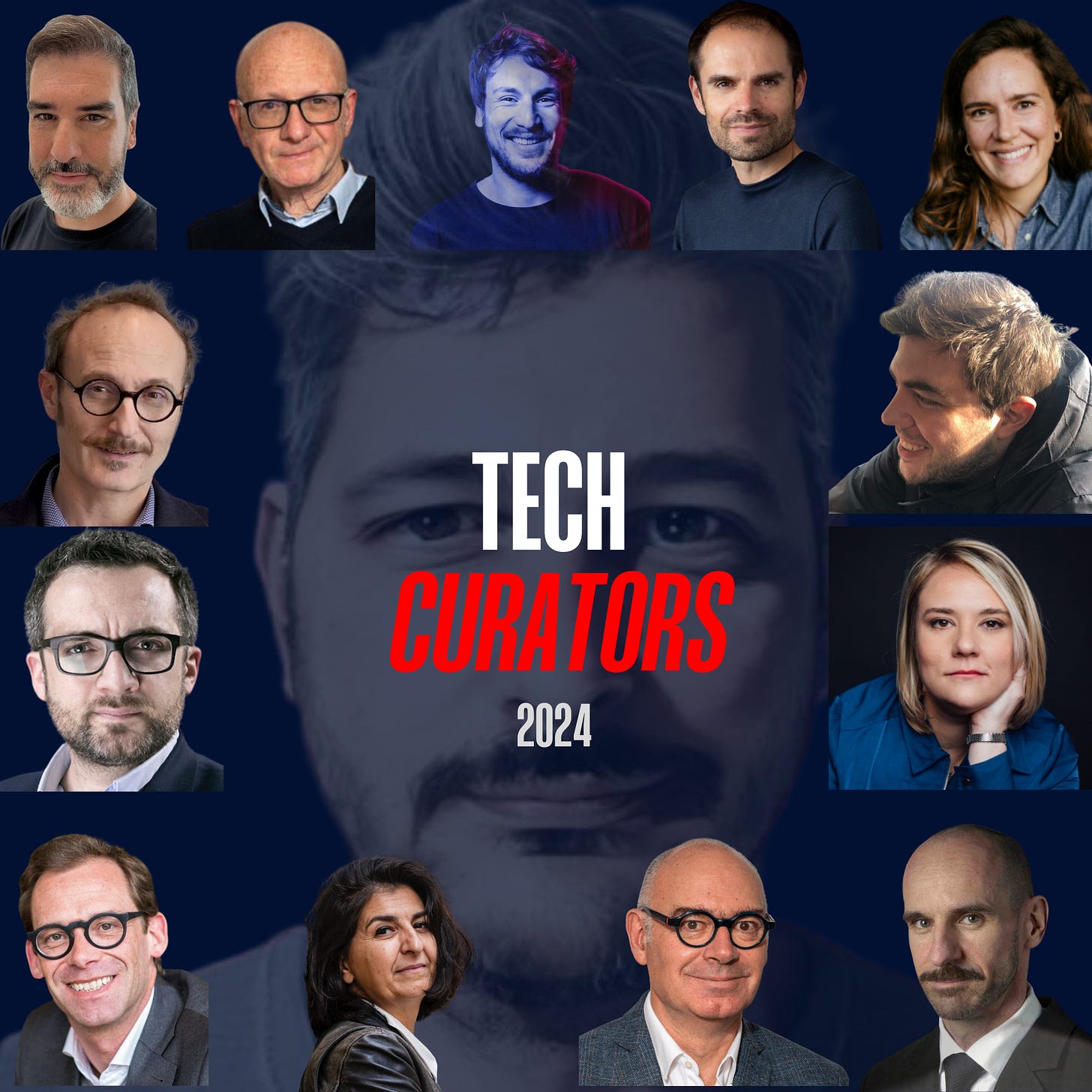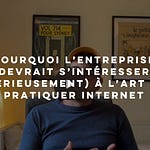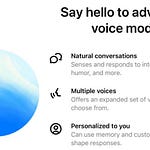Tech Curators is essentially the commentary and analysis on episodes from Tech Sources, my French podcast where I invite francophone futurists to share their key sources of technological insight. Over the course of the 2023-2024 season, more than 300 sources were shared by my 13 guests—a staggering amount of knowledge and inspiration. Since I initially couldn’t host English-speaking guests, I turned to artificial intelligence to generate an English review of these French episodes, creating commentary and analysis that speaks directly to a global audience. This approach opens up the conversation to the world, showcasing that the ideas, trends, and sources we discuss are not just regional but universal.
The episode you’re about to hear is a recap of the entire 2023-2024 season, pulling together the most important insights and sources shared throughout the year.
A huge thanks to my guests this season 🙏—their contributions have been invaluable, and I hope they inspire you to shape your own future with clarity and purpose.
Sources to the Future: Taming the Information Overload
In our age of infinite scrolls, open tabs, and inboxes that never stop filling, information feels less like a resource and more like an oncoming tidal wave. We’re living in a world where we constantly risk drowning in data. The real question is no longer how much we know but how we can manage to sift through it all, how to curate, prioritize, and apply what actually matters. This is the challenge of personal knowledge management (PKM), a modern dilemma explored throughout this season of Tech Source.
Each guest this season brought their own take on managing the chaos of information—methods that range from the highly digital to the quietly analog, from action-oriented strategies to contemplative curation. But regardless of their approach, the underlying quest was always the same: how can we make sense of a world overflowing with knowledge, and how can we extract the pieces that will shape the future?
The Age of Overwhelm
At the heart of these conversations was a central anxiety—one that most of us experience in some form every day: the sense of being overwhelmed by the sheer volume of information we consume. There’s a familiar feeling of having a browser full of tabs, a stack of articles to read, and never quite finding time to revisit that crucial link saved for later. This digital excess is a feature, not a bug, of our modern lives, and it creates a new kind of pressure: not to know everything, but to manage the endless stream that we encounter.
This deluge forces us to rethink how we consume, organize, and apply knowledge. As one guest remarked, it’s not just about collecting information anymore—it’s about finding ways to actually do something with it.
Curation as Resistance
In an age of data deluge, curation has become a form of resistance. For some of our guests, this meant intentionally stepping back from the digital frenzy to engage with analog tools. One fascinating insight that emerged was the persistence of the handwritten note, a simple act that remains surprisingly effective in our hyper-digital world. There’s something about the physicality of writing, they observed, that engages a different part of the brain, helping information stick in ways that endless swipes and clicks can’t replicate.
But analog practices are just part of the solution. Even more important is the quality of what we consume. In an era where the signal is increasingly drowned out by the noise, the ability to carefully curate one’s sources becomes an indispensable skill. Some guests spoke of limiting their intake to high-caliber publications and thinkers, emphasizing the need for deliberate, thoughtful engagement with fewer—but more meaningful—sources. It’s about developing a filter, not just for content, but for credibility.
The Action Imperative
Still, the most important step in the PKM process is turning knowledge into action. As one expert pointed out, too often we highlight, bookmark, and save with the best of intentions, only to let those insights sit, unused, gathering dust in the corners of our minds—or worse, our apps. There’s a critical step between collecting knowledge and applying it. For those who master PKM, this step becomes second nature: every piece of information is tied to a potential action, every insight a doorway to creation or transformation.
Some guests brought a particularly action-oriented approach to their PKM systems, integrating tasks and action items into their knowledge frameworks. It’s not enough to simply collect; knowledge only gains value when it’s put to use.
The Digital Dilemma
However, not all roads lead to the digital realm. One of the season’s recurring themes was the need for balance—especially between digital tools and mental space. Several guests shared the importance of building in moments of digital detox, periods of deliberate disconnection to allow for deeper thought. In a world of endless notifications and real-time updates, the most valuable resource may be time to process and reflect.
These detox periods, while seemingly counterintuitive in the tech world, are increasingly recognized as essential to maintaining clarity. Information, after all, doesn’t just flow in—it must be digested, connected, and synthesized. Without that space, we risk being lost in a whirlwind of facts that never quite coalesce into knowledge.
The Future of Thought
As we look forward, what’s clear from this season is that PKM will only grow in importance as the pace of technological change accelerates. Artificial intelligence, with its power to synthesize and analyze data, offers new possibilities, but also new challenges. Automation is already transforming how we filter and manage information—whether through AI-powered research assistants or tools that summarize key points at lightning speed.
Yet, there remains a lingering caution: technology alone isn’t a silver bullet. We must remember that algorithms, like any system, carry the biases of the data they’re trained on. Several guests urged us to remain vigilant, to question not just the information itself but the systems that deliver it.
Ultimately, PKM is not just about the tools we use, but about cultivating a mindset. It’s about approaching information with a critical eye, learning to filter without being overwhelmed, and—perhaps most importantly—remembering that our value lies not in how much we know, but in how we apply it.
As we close this season, one message stands out: we are not drowning in data—we are learning how to swim.













Partagez ce post